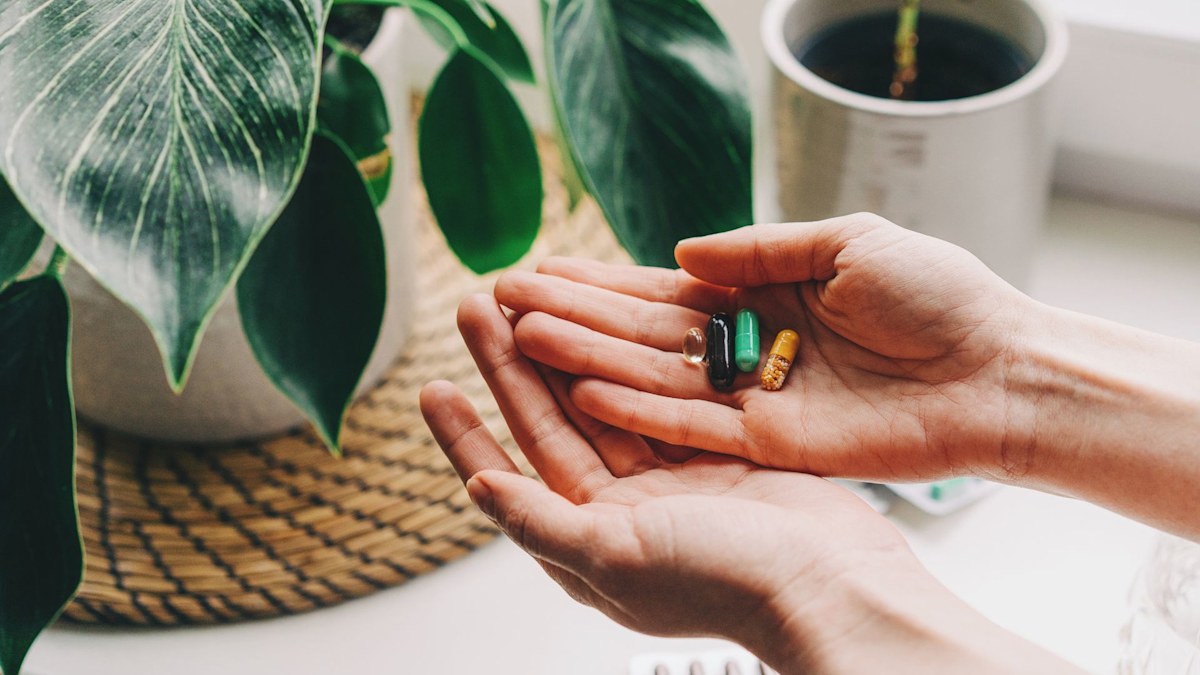
Can stress supplements help women in their 40s, 50s and 60s?
Scour the virtual shelves of Boots, Holland and Barrett and Victoria Health and you’ll see plenty of pots of pills promising stress relief.
Anti-stress and anxiety supplements are big business, with endless ingredients promising to rid the unpleasant feeling from your life.
Stress is particularly prevalent among midlife women, juggling the competing demands of intense careers, organizing childcare and looking after elderly parents.
So, the idea of popping a pill that would make stress disappear is incredibly appealing – but can de-stress supplements actually make a difference? We spoke to three female nutritionists for their take on the topic.
Do stress supplements work?
“Stress is complex and affects everything from cortisol levels to neurotransmitters such as serotonin and dopamine, to the immune system and digestion,” begins nutritionist Charlotte Faure Green, who specialising in working with clients with anxiety.
“Because of this, no single supplement is a magic fix for stress, but the right one can absolutely offer valuable support alongside good sleep, eating well, meaningful movement, and nervous system regulation,” she says.
Fellow nutrition expert Hannah Alderson, who specialises in hormones, agrees, noting: “Stress is a big word and it’s important to remember that no single supplement is going to solve it – your body doesn’t work like that. Reducing elevated cortisol is a joint effort of positive action, human connection, joy, nutrition, sleep and movement, and you can have a bonus bit of help from supplements.”
To further reiterate, nutritionist Jo Woodhurst, who works with supplement brand Ancient+Brave, adds that supplements provide “an extra layer of support,” on top of a healthy lifestyle.
All three women note that there are a few supplements that should have a positive impact on your stress levels.
Which supplements help with stress?
“Supplements with key minerals such as magnesium have a soothing effect on the nervous system and help to relax tense muscles, while vitamin C is important for our adrenal health,” says Jo.
“Others supplements provide adaptogenic mushrooms such as reishi or herbs such as ashwagandha which help to support the body in dealing with the physical and chemical effects of stress. Taking these alongside your other tools in your stress management kit provides a full spectrum approach rather than a quick fix.”
Hannah also notes the power of ashwagandha is soothing stress. “Ashwagandha is perhaps best known for its ability to reduce stress. It’s classified as an adaptogen, a collection of plant based substances that help the body cope with stress and maintain a state of balance.
“Adaptogens are thought to interact and reduce the activity of the HPA axis, which is responsible for the body’s stress response and they may help regulate the release of stress hormones such as cortisol, potentially reducing the body’s physiological response to stress,” she explains.
Though she says she’s a “big fan” of supplementing ashwagandha for the role it can play reducing stress and fatigue, sleep quality and potentially even enhancing athletic performance, Hannah cautions: “Please don’t rely on ashwagandha alone to reduce stress!”
Charlotte recommends saffron, but with a caveat. “If you are not already taking an antidepressant, saffron is a great option. At around 30mg daily, it has been shown to support serotonin and dopamine naturally without making you drowsy. I like Saffrosun Calm from The Naked Pharmacy.”
How quickly do supplements for stress work?
Now we know which anti-stress supps we need to look for, we’re also curious about how quickly they get to work – will be feeling immediately zen? Sadly not, according to Jo.
“As all things in nutrition and humans, how fast supplements work will depend. We all have unique bodies and different life loads which will affect how quickly we’ll feel the benefits.
“There are some nutrients, such as magnesium, which can get to work easing tension pretty quickly – if you are depleted (which many people under stress find themselves to be due to stress depleting magnesium) this may take a little longer to refill the depleted reservoir.
“Whilst some people report feeling the grounding effects of ashwagandha within a few hours – especially in high stress moments – effects are best felt over time. See it as strength training for the nervous system.
“Building resilience to stress happens best with consistent use over time, and studies on adaptogens support this approach. So, while you might notice subtle shifts early on, the real benefits build with regular use.”
Proceed with caution
Charlotte’s earlier caution about supplements mixing with medications leads us on to the elements of supplements we need to be cautious about. “Adaptogens and nutrients can interact with some medications, so it is always worth checking compatibility.
“More is not always better,” she adds. “Look out for complexes that contain a long list of ingredients in tiny ineffective doses, or ‘proprietary blends’ that do not disclose amounts.”
She adds that supplements aren’t one-size-fits-all either. “Bio-individuality plays a role in how we respond to stress support. What helps one person unwind might leave another feeling flat or even anxious. The right supplement depends on your body, not just what is trending.”
















